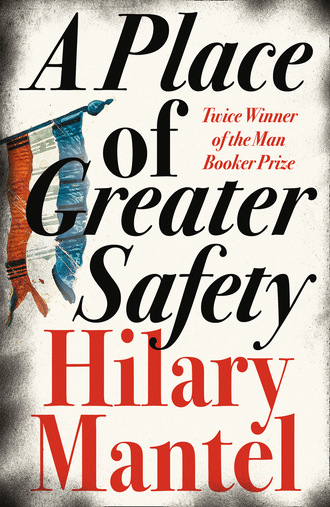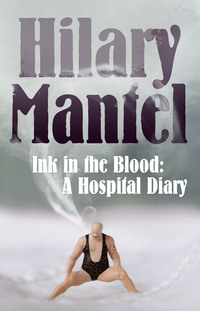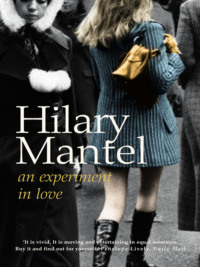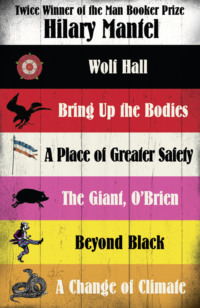
Полная версия
A Place of Greater Safety
Camille stopped. There was an immediate buzz – of protest, of simulated horror, of speculation. At once he felt that hideous urge to destroy his own case; he was enough of a lawyer, perhaps, or perhaps, he wondered, am I just too honest? ‘Listen, everyone, please – this is what de Viefville says the King said. But I’m not sure if one can believe it – isn’t it too pat? I mean, if people wanted to engineer a constitutional crisis, isn’t that just what they’d hope for him to say? Actually, perhaps – because he’s not a bad man, is he, the King … I think he probably didn’t say that at all, he probably made some feeble joke.’
D’Anton noted this: that Camille did not stutter, and that he talked to every person in the crowded room as if he were speaking only to them. But someone said, ‘Well, get on, then!’
‘The edicts were registered. The King left. As soon as he was outside the door, the edicts were annulled and struck off the books. Two members of the Parlement are arrested on lettres de cachet. The Duke of Orléans is exiled to his estates at Villers-Cotterêts. Oh – and I am invited to dine with my esteemed cousin de Viefville.’
AUTUMN PASSED. It’s like, Annette said, if the roof fell in, you would scrabble in the debris for what valuables were left; you wouldn’t sit down among the falling masonry saying ‘why, oh why?’ The prospect of Camille, of what he was going to do to herself and her daughter, seemed too ghastly to resist. She accepted it as people become reconciled to the long course of a terminal illness; at times, she desired death.
V. A New Profession
(1788)
NOTHING CHANGES. Nothing new. The same old dreary crisis atmosphere. The feeling that it can’t get much worse without something giving way. But nothing does. Ruin, collapse, the sinking ship of state: the point of no return, the shifting balance, the crumbling edifice and the sands of time. Only the cliché flourishes.
In Arras, Maximilien de Robespierre faces the New Year truculent and disheartened. He is at war with the local judiciary. He has no money. He has given up the literary society, because poetry is becoming an irrelevance. He is trying to restrict his social life, because he finds it difficult now to be even normally courteous to the self-satisfied, the place-seekers, the mealy-mouthed – and that is a fair description of polite society in Arras. More and more, casual conversations turn to the questions of the day, and he stifles his wish to smile and let things pass; that conciliatory streak, he is fighting hard to eradicate that. So every workaday disagreement becomes an affront, every point conceded in court becomes a defeat. There are laws against duelling, but not against duelling in the head. You can’t, he tells his brother Augustin, separate political views from the people who hold them; if you do, it shows you don’t take politics seriously.
Somehow his thoughts ought to show on his face – but he finds himself still on the guest lists, still in demand for country drives and evenings at the theatre. They will not see that he has not enough unction left to oil the wheels of social intercourse. The pressure of their expectations forces from him again and again a little tact, the soft answer; it’s so easy to behave, after all, like the nice boy you always were.
Aunt Henriette, Aunt Eulalie edge around with that stifling tact of their own, their desire always to do the very very best for you. Aunt Eulalie’s stepdaughter, Anaïs: so pretty, so fond of you: so why not? And why not make it soon? Because, he said with desperation, next year they might call the Estates, and who knows, who knows, I might be going away.
BY CHRISTMAS the Charpentiers were well settled in their new house at Fontenay-sous-Bois. They miss the café, but not the city mud, the noise, the rude people in the shops. The country air, they say, makes them feel ten years younger. Gabrielle and Georges-Jacques come out on Sundays. You can see they’re happy; it’s so gratifying. The baby will have enough shawls for seven infants and more attention than a dauphin. Georges-Jacques looks harassed, pale after the long winter. What he needs is a month at home in Arcis, but he can’t take the time off. He now has complete charge of the Board of Excise’s legal work, but he says he needs another source of income. He would like to buy some land, but he says he hasn’t the capital. He says there is a limit to what one man can do, but no doubt he is worrying needlessly. We are all very proud of Georges.
AT THE TREASURY, Claude Duplessis comports himself as cheerfully as he can, given the circumstances. Last year, during a period of five months, France had three Comptrollers in succession, all of them asking the same silly questions and requiring to be fed streams of useless information. He has to think quite hard when he wakes in the morning to recall who he works for. Soon no doubt M. Necker will be invited back, to treat us to more of his glib nostrums about public confidence. If the public at large want to think of Necker as some sort of Messiah, who are we, mere clerks, mere civil servants after all … No one at the Treasury thinks the situation can be retrieved.
Claude confides to a colleague that his lovely daughter wants to marry a little provincial lawyer who has a stutter and who hardly ever appears in court, and who seems in addition to have a bad moral character. He wonders why his colleague smirks so.
The deficit is one hundred and sixty million livres.
CAMILLE DESMOULINS was living in the rue Sainte-Anne, with a girl whose mother painted portraits. ‘Do go and see your family,’ she told him. ‘Just for the New Year.’ She looked at him appraisingly; she was thinking of going into her mother’s line of work. Camille’s not easy to put on paper; it’s easier to draw the men the taste of the age admires, florid fleshy men with their conscious poise and newly barbered heads. Camille moves too quickly for even a lightning sketch; she knows he is moving on, out of their lives, and she wants if she can to make things right for him before he goes.
So now the diligence, not worth the name, rumbled towards Guise over roads rutted and flooded by January rains. As he approached his home, Camille thought of his sister Henriette, of her long dying. Whole days, whole weeks had gone by when they had not seen Henriette, only his mother’s whey-face, and the doctor coming and going. He had gone off to school, to Cateau-Cambrésis, and sometimes he had woken in the night and thought, why isn’t she coughing? When he returned home he was taken into her room and allowed to sit for five minutes by the bed. She had transparent places under her eyes, where the skin shone blue; her bony shoulders were pushed forwards by the pillows. She had died the year he went to school in Paris, on a day when the rain fell steadily and coursed in brown channels through the streets of the town.
His father had given the priest and the doctor a glass of brandy – as if they were not habituated to death, as if they needed bracing. Himself, he sat in a corner inconspicuously, and awkwardly very awkwardly the men revolved the conversation around to him: Camille, how will you like going to Louis-le-Grand? I have made up my mind to like it, he said. Won’t you miss your mother and father? You must remember, he said, that they sent me to school three years ago when I was seven, so I will not miss them at all, and they will not miss me. He’s upset, the priest said hurriedly; but Camille your little sister’s in heaven. No, Father, he had said: we are compelled to believe that Henriette is in purgatory now, tasting torments. This is the consolation our religion allows us for our loss.
There would be brandy for him now when he arrived home, and his father would ask, as he had done for years, how was the journey? But he was used to the journey. Perhaps the horses might fall over, or you might be poisoned en route, or bored to death by a fellow traveller; that was the sum of the possibilities. Once he had said, I didn’t see anything, I didn’t speak to anyone, I thought evil thoughts all the way. All the way? And those were the days before the diligence. He must have had stamina, when he was sixteen.
Before leaving Paris he had read over his father’s recent letters. They were trenchant, unmagisterial, wounding. Between the lines lay the unspeakable fact that the Godards wish to break off his engagement to his cousin Rose-Fleur. It had been made when she was in her cradle; how were they to know how things would turn out?
It was Friday night when he arrived home. The next day there were calls to be paid around the town, gatherings he could not avoid. Rose-Fleur affected to be too shy to speak to him, but the pretence sat uneasily on her restless shoulders. She had darting eyes and the Godards’ heavy dark hair; she ran her eyes over him from time to time, making him feel that he had been coated with black treacle.
On Sunday he went to Mass with the family. In the narrow, sleet-blown streets he was an object of curiosity. In church people looked at him as if he had come from a warmer region than Paris.
‘They say you are an atheist,’ his mother whispered.
‘Is that what they say I am?’
Clément said, ‘Perhaps you will be like that diabolic Angevin who vanished at the consecration in a puff of smoke?’
‘It would be an event,’ Anne-Clothilde said. ‘Our social calendar has been so dull.’
Camille did not study the congregation; he was aware that they studied him. There was M. Saulce and his wife; there was the same physician, bewigged and tubby, who once assisted Henriette to her coffin.
‘There’s your old girlfriend,’ Clément said. ‘We’re not supposed to know, but we do.’
Sophie was a doubled-chinned matron now. She looked through him as if his bones were glass. He felt that perhaps they were; even stone seemed to crumble and melt in the scented ecclesiastical gloom. Six points of light on the altar guttered and flared; their shadows cross-hatched flesh and stone, wine and bread. The few communicants melted away into the darkness. It was the feast of the Epiphany; when they emerged, the blue daylight scoured the burgers’ skulls, icing out features and peeling them back to bone.
He went upstairs to his father’s study and sifted through his filed correspondence until he found the letter he wanted, the missive from his Godard uncle. His father came in as he was reading it. ‘What are you doing?’ He didn’t try to hide the letter. ‘That’s really going rather far,’ Jean-Nicolas said.
‘Yes.’ Camille smiled, turning the page. ‘But then you know I am ruthless and capable of great crimes.’ He carried the paper to the light. ‘Camille’s known instability’, he read, ‘and the dangers that may be apprehended to the happiness and durability of the union’. He put the letter down. His hand trembled. ‘Do they think I’m mad?’ he asked his father.
‘They think –’
‘What else can it mean, instability?’
‘Is it just their choice of words you’re quibbling about?’ Jean-Nicolas went over to the fireplace, rubbing his hands. ‘That bloody church is freezing,’ he said. ‘They could have come up with other terms, but of course they won’t commit them to writing. Something got back about a – relationship – you were having with a colleague whom I had always held in considerable –’
Camille stared at him. ‘That was years ago.’
‘I don’t find this particularly easy to talk about,’ Jean-Nicolas said. ‘Would you like just to deny it, and then I can put people straight on the matter?’
The wind tossed handfuls of sleet against the windows, and rattled in the chimneys and eaves. Jean-Nicolas raised his eyes apprehensively. ‘We lost slates in November. What’s happening to the weather? It never used to be like this.’
Camille said, ‘Anything that happened was – oh, back in the days when the sun used to shine all the time. Six years ago. Minimum. None of it was my fault, anyway.’
‘So what are you claiming? That my friend Perrin, a family man, whom I have known for thirty-five years, a man highly respected in the Chancery division and a leading Freemason – are you claiming that one day out of the blue he ran up to you and knocked you unconscious and dragged you into his bed? Rubbish. Listen,’ he cried, ‘can you hear that strange tapping noise? Do you think it’s the guttering?’
‘Ask anyone,’ Camille said.
‘What?’
‘About Perrin. He had a reputation. I was just a child, I – oh well, you know what I’m like, I never do quite know how I get into these things.’
‘That won’t do for an excuse. You can’t expect that to do, for the Godards.’ He broke off, looked up. ‘I think it is the guttering, you know.’ He turned back to his son. ‘And I only bring this up, as one example of the sort of story that gets back.’
It had begun to snow properly now, from an opaque and sullen sky. The wind dropped suddenly. Camille put his forehead against the cold glass and watched the snow begin to drift and bank in the square below. He felt weak with shock. His breath misted the pane, the fire crackled behind him, gulls tossed screaming in the upper air. Clément came in. ‘What’s that funny noise, a sort of tapping?’ he said. ‘Is it the guttering, do you think? That’s funny, it seems to have stopped now.’ He looked across the room. ‘Camille, are you all right?’
‘I think so. Could you just tell the fatted calf it’s been reprieved again?’
Two days later he was back in Paris, in the rue Sainte-Anne. ‘I’m moving out,’ he told his mistress.
‘Suit yourself,’ she said. ‘If you must know, I really object to your carrying on with my mother behind my back. So perhaps it’s just as well.’
SO NOW CAMILLE woke up alone: which he hated. He touched his closed eyelids. His dreams did not bear discussion. His life is not really what people imagine, he thought. The long struggle for Annette had shredded his nerves. How he would like to be with Annette, and settled. He did not bear Claude any ill-will, but it would be neat if he could be just plucked out of existence. He did not want him to suffer; he tried to think of a precedent, in the Scriptures perhaps. Anything could happen; that was his experience.
He remembered – and he had to remember afresh every morning – that he was going to marry Annette’s daughter, that he had made her swear an oath about it. How complicated it all was. His father suggested that he wrecked people’s lives. He was at a loss to see this. He had not raped anybody, nor committed murder, and from anything else people ought to be able to pick themselves up and carry on, as he was always doing.
There was a letter from home. He didn’t want to open it. Then he thought, don’t be a fool, someone might have died. Inside was a banker’s draft, and a few words from his father, less of apology than of resignation. This had happened before; they had gone through this whole cycle, of name-calling and horror and flight and appeasement. At a certain point, his father would feel he had overstepped the mark. He had an impulse, a desire to have control; and if his son stopped writing, never came home again, he would have lost control. I should, Camille thought, send this draft back. But as usual. I need the money, and he knows it. Father, he thought, you have other children whom you could torment.
I’ll go round and see d’Anton, he thought. Georges-Jacques will talk to me, he doesn’t regard my vices, in fact perhaps he rather likes them. The day brightened.
They were busy at d’Anton’s offices. The King’s Councillor employed two clerks nowadays. One of them was a man called Jules Paré, whom he’d known at school, though d’Anton was younger by several years; it didn’t seem odd, that he employed his seniors these days. The other was a man called Deforgues, whom d’Anton also seemed to have known for ever. Then there was a hanger-on called Billaud-Varennes, who came in when he was wanted, to draft pleas and do the routine stuff, picking up the practice’s overflow. Billaud was in the office this morning, a spare, unprepossessing man with never a good word to say about anybody. When Camille came in, he was tapping papers together on Paré’s desk, and at the same time complaining that his wife was putting on weight. Camille saw that he was specially resentful this morning; for here he was, down-at-heel and seedy, and here was Georges-Jacques, with his good broadcloth coat nicely brushed and his plain cravat a dazzling white, with that general money-in-the-bank air of his and that loud posh voice … ‘Why are you complaining about Anna,’ Camille asked, ‘when you really want to complain about Maître d’Anton?’
Billaud looked up. ‘I’ve no complaints,’ he said.
‘Aren’t you lucky? You must be the only man in France with no complaints. Why is he lying?’
‘Go away, Camille.’ D’Anton picked up the papers Billaud had brought. ‘I’m working.’
‘When you were received into the College of Advocates, didn’t you have to go to your parish priest and ask him for a certificate to say that you were a good Catholic?’ D’Anton grunted, buried in his counter-claims. ‘Didn’t it stick in your throat?’
‘“Paris is worth a Mass,”’ d’Anton said.
‘Of course, this is why Maître Billaud-Varennes doesn’t advance himself from his present position. He also would be a King’s Councillor, but he can’t bring himself to do it. He hates priests, don’t you?’
‘Yes,’ Billaud said. ‘As we’re quoting, I’ll quote for you – “I should like to see, and this will be the last and most ardent of my desires, I should like to see the last king strangled with the guts of the last priest.”’
A short pause. Camille looks Billaud over. He can’t stand him, hardly likes to be in the same room, Billaud makes his skin crawl with distaste and a sort of apprehension that he can’t fathom. But that’s just it – he has to be in the same room. He has to keep seeking out the company of people he can’t stand, it’s become a compulsion. He looks at certain people these days, and it’s as if he’s always known them, as if they belong to him in some way, as if they’re his relatives.
‘How’s your subversive pamphlet?’ he said to Billaud. ‘Have you found a printer for it yet?’
D’Anton looked up from his papers. ‘Why do you spend your time writing things that can never be published, Billaud? I’m not asking to needle you – I just want to know.’
Billaud’s face mottled. ‘Because I can’t compromise,’ he said.
‘Oh, for God’s sake,’ d’Anton said. ‘Wouldn’t it be better – no, we’ve had this conversation before. Perhaps you should try pamphleteering yourself, Camille. Try prose, instead of poetry.’
‘His pamphlet is called “A Last Blow against Prejudice and Superstition”,’ Camille said. ‘Doesn’t look as if it will be quite the last blow, does it? Looks as if it will be about as successful as all those dismal plays he wrote.’
‘The day when you –’ Billaud began.
D’Anton cut him off. ‘Let’s have some quiet.’ He pushed the pleadings at Billaud. ‘What is this rubbish?’
‘You teach me my business, Maître d’Anton?’
‘Why not, if you don’t know it?’ He tossed the papers down. ‘How was your cousin Rose-Fleur, Camille? No, don’t tell me now, I’m up to here.’ He indicated: chin height.
‘Is it hard to be respectable?’ Camille asked him. ‘I mean, is it really gruelling?’
‘Oh, this act of yours, Maître Desmoulins,’ Billaud said. ‘It makes me quite ill, year after year.’
‘You make me ill too, you ghoul. There must be some outlet for your talents, if the law fails. Groaning in vaults would suit you. And dancing on graves is always in request.’
Camille departed. ‘What would be an outlet for his talents?’ Jules Paré said. ‘We are too polite to conjecture.’
AT THE THÉÂTRE DES VARIÉTÉS the doorman said to Camille, ‘You’re late, love.’ He did not understand this. In the box-office two men were having a political argument, and one of them was damning the aristocracy to hell. He was a plump little man with no visible bones in his body, the kind that – in normal times – you see squeaking in defence of the status quo. ‘Hébert, Hébert,’ his opponent said without much heat, ‘you’ll be hanged, Hébert.’ Sedition must be in the air, Camille thought. ‘Hurry up,’ the doorman said. ‘He’s in a terrible mood. He’ll shout at you.’
Inside the theatre there was a hostile, shrouded dimness. Some disconsolate performers were hopping about trying to keep warm. Philippe Fabre d’Églantine stood before the stage and the singer he had just auditioned. ‘I think you need a holiday, Anne,’ he said. ‘I’m sorry, my duck, it just won’t do. What have you been doing to your throat? Have you taken to smoking a pipe?’
The girl crossed her arms over her chest. She looked as if she might be about to burst into tears.
‘Just put me in the chorus, Fabre,’ she said. ‘Please.’
‘Sorry. Can’t do it. You sound as if you’re singing inside a burning building.’
‘You’re not sorry, are you?’ the girl said. ‘Bastard.’
Camille walked up to Fabre and said into his ear, ‘Are you married?’
Fabre jumped, whirled around. ‘What?’ he said. ‘No, never.’
‘Never,’ Camille said, impressed.
‘Well, yes, in a way,’ Fabre said.
‘It isn’t that I mean to blackmail you.’
‘All right. All right, I am then. She’s … touring. Listen, just wait for me a half hour, will you? I’ll be through as soon as I can. I hate this hack-work, Camille. My genius is being crushed. My time is being wasted.’ He waved an arm at the stage, the dancers, the theatre manager frowning in his box. ‘What did I do to deserve this?’
‘Everybody is disgruntled this morning. In your box-office they are having an argument about the composition of the Estates-General.’
‘Ah, René Hébert, what a fire-eater. What really irks him is that his triumphant destiny is to be in charge of the ticket returns.’
‘I saw Billaud this morning. He is disgruntled too.’
‘Don’t mention that cunt to me,’ Fabre said. ‘Trying to take the bread out of writers’ mouths. He’s got one trade, why doesn’t he stick to it? It’s different for you,’ he added kindly. ‘I wouldn’t mind if you wanted to write a play, because you’re such a complete and utter failure as a lawyer. I think, Camille dear, that you and I should collaborate on some project.’
‘I think I should like to collaborate on a violent and bloody revolution. Something that would give offence to my father.’
‘I was thinking more of something in the short-term, which would make money,’ Fabre said reprovingly.
Camille took himself into the shadows, and watched Fabre losing his temper. The singer came stalking towards him, threw herself into a seat. She dropped her head, swayed her chin from side to side to relax the muscles of her neck: then pulled tight around her upper arms a fringed silk shawl that had a certain fraying splendour about it. She seemed frayed herself; her expression was bad-tempered, her mouth set. She looked Camille over. ‘Do I know you?’
He looked her over in turn. She was about twenty-seven, he thought; small bones, darkish brown hair, snub nose. She was pretty enough, but there was something blurred about her features: as though at some time she’d been beaten, hit around the head, had almost recovered but would never quite. She repeated her question. ‘Admire the directness of your approach,’ Camille said.
The girl smiled. Tender bruised mouth. She put up a hand to massage her throat. ‘I thought I really did know you.’
‘I am afflicted by this, too. Lately I think I know everybody in Paris. It’s like a series of hallucinations.’
‘You do know Fabre, though. Can you do something for me there? Have a word, put him in a better temper?’ Then she shook her head. ‘No, forget it. He’s right, my voice has gone. I trained in England, would you believe? I had these big ideas. I don’t know what I’m going to do now.’
‘Well – what have you ever done, between jobs?’
‘I used to sleep with a marquis.’
‘There you are, then.’
‘I don’t know,’ the girl said. ‘I get the impression that marquises aren’t so free with their money any more. And me, I’m not so free with my favours. Still – move on is the best thing. I think I’ll try Genoa, I’ve got contacts there.’








